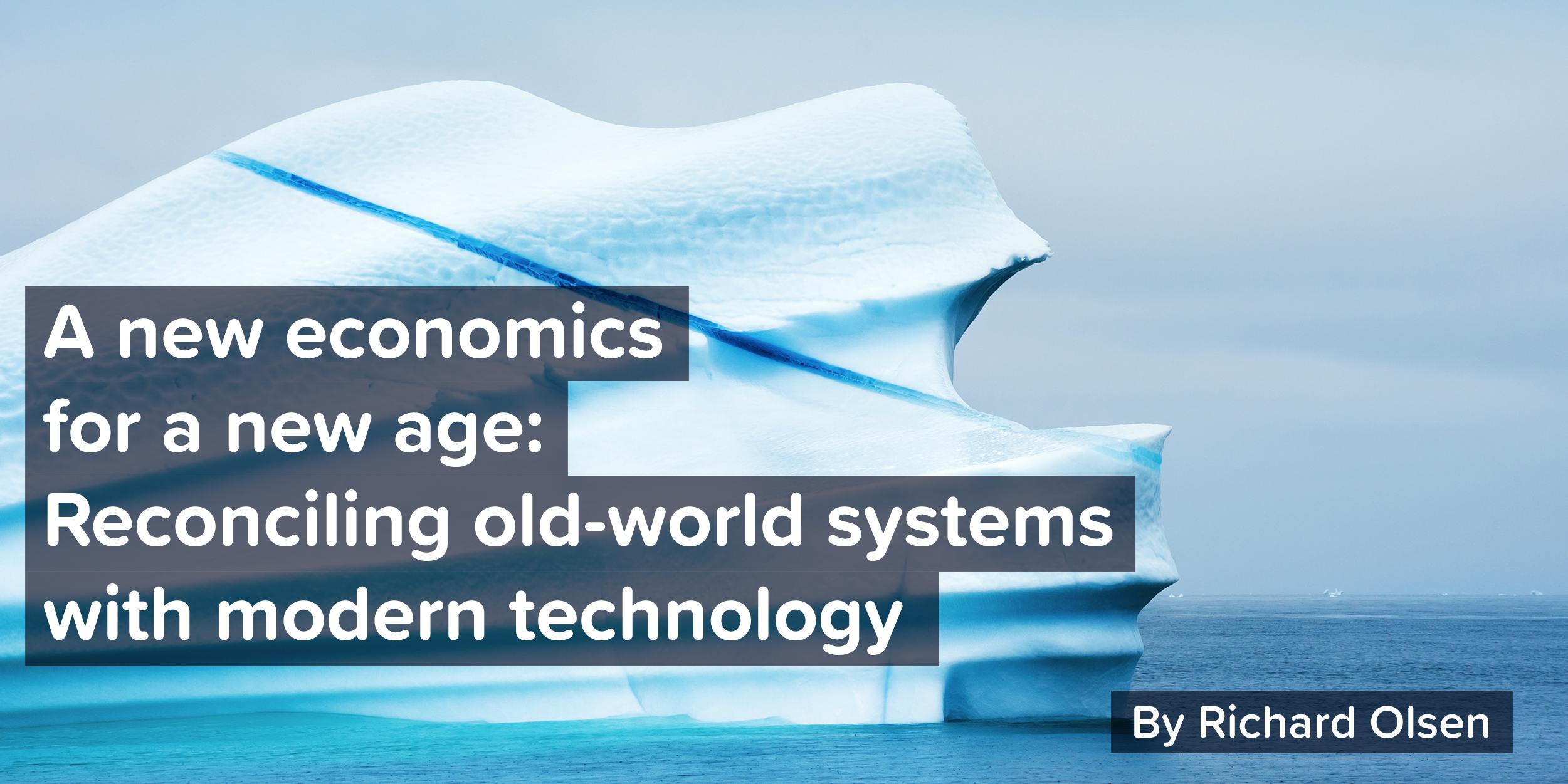A new economics for a new age: Reconciling old-world systems with modern technology

- Date
- 03/12/2022
- Written by
- Lykke
- Share
- Leave your opinion (2 reviews)
Zug, Switzerland. - December 21st, 2022. This series of articles argues that the current global financial and political system was not designed for a technology-driven society and, as such, is unfit for purpose. In short, it is a “broken bicycle”; no matter how expert the rider, the result will always be failure. To fix the bicycle, we have to go back to first principles.
Humankind is currently facing huge challenges. The Ukrainian war and its consequences are a bitter ongoing reality, while global warming is becoming increasingly perceptible around the globe. Furthermore, during the financial crisis in 2008, central bankers were only able to salvage the global economy by incurring huge public debts, crippling economies and draining financial resources away from vital public-spending initiatives.
In the following months, we will publish a series of articles with new ideas on how to address the many challenges that humankind faces.
Technology as the driving force of society
‘Sapiens: A Brief History of Humankind’ by Yuval Noah Harari documented the rise of humankind and our pervasive impact across the globe. Along the way, technological advances, from our ability to make metal swords to the development of nuclear weapons, have profoundly shaped the course of history. There have also been dramatic changes in our economic systems as they evolved from localized barter economies through the spreading use of minted coins and, ultimately, to today’s globalized fiat currencies.
In the past century, the rate of technological innovation has quickened dramatically, increasing the economic prowess of humankind by orders of magnitude. In the midst of this rapid change, one could believe that progress is happening in all aspects of civilization at an equal rate. This is not the case. Certain aspects have barely evolved at all; if anything, their evolution has been superficial.
The origins of today’s economic and political systems
Our political systems date back many centuries. For example, the constitutional framework in England traces its origins back to King Alfred of the Anglo-Saxons, while that of the USA was ratified in 1788. Other countries adopted their constitutional frameworks somewhat later. Nevertheless, they were all informed by their forebears.
Our constitutional frameworks shape our political discourse and legal processes. They define our economic realities and, perhaps most importantly, they can be catalysts or obstacles to progress. Society’s ability to respond to challenges in any area is conditional on the constraints of our constitutional and legal systems. Like our political system, our financial and economic system, with its markets, institutions, regulatory bodies, banks, insurance companies, and fintech, has also evolved organically over centuries.
In light of this, we believe that the way forward is to analyze the necessities of the economy and society in general, then assess different design options. This reflects the thinking required in the sphere of technology, where reviewing designs and their implementation while evaluating alternative designs and methodologies is standard practice.
The economic and political system has evolved gradually, so there has never been a top-down review process. The banking system, for example, has been computerized step-by-step from application to application, and there has never been a holistic overhaul of its entire architecture. This is why banks continue to use outdated mainframes for financial transactions that are batch-based with settlements on a daily basis.
Constraints imposed by operating systems
The history of mobile telephones provides a good illustration of how restricting outdated designs can be: The first Nokia mobile phones that dominated the global market had a particular operating system that determined which user features could be added and which could not. Steve Jobs could never have created the smartphone that we use today based on the operating system of an old Nokia. Our political system and financial infrastructure are analogous to a smartphone operating system; they set the constraints of what is possible and what is not.
Is the existing political and economic system fit for purpose? Does it successfully and efficiently allocate resources? Can it ensure sustainability and ensure peace with minimal disruption? Climate change, the Ukrainian war, and political suppression in many countries indicate that these objectives have not been reached. Is this due to the wrong political and economic leaders being in power, or is there a more fundamental problem?
The “broken bicycle” analogy provides our answer: Even the best cyclist cannot perform well on a broken bicycle. Similarly, even the most capable and well-meaning leaders or institutions are hobbled by the broken system within which they must work.
The need for new ideas
The political and economic system is rooted in an era that predates modern technology, when nobody had any inclination of what would become technologically feasible and how the real economy would evolve. The concepts embedded in our economic and political systems are based on a worldview that predates modern technology. The systems are outdated; they are operating systems that cannot work, regardless of who holds the power. We have to go back to the drawing board and rebuild from the basics, but using modern technology.
The following series of articles will introduce these basics and explain how to get from where we are now to where we need to be. New ideas and concepts, such as blockchain technology and cryptocurrency, will be introduced and set in a broader context.
Richard Olsen is CEO & Founder of Lykke Corp